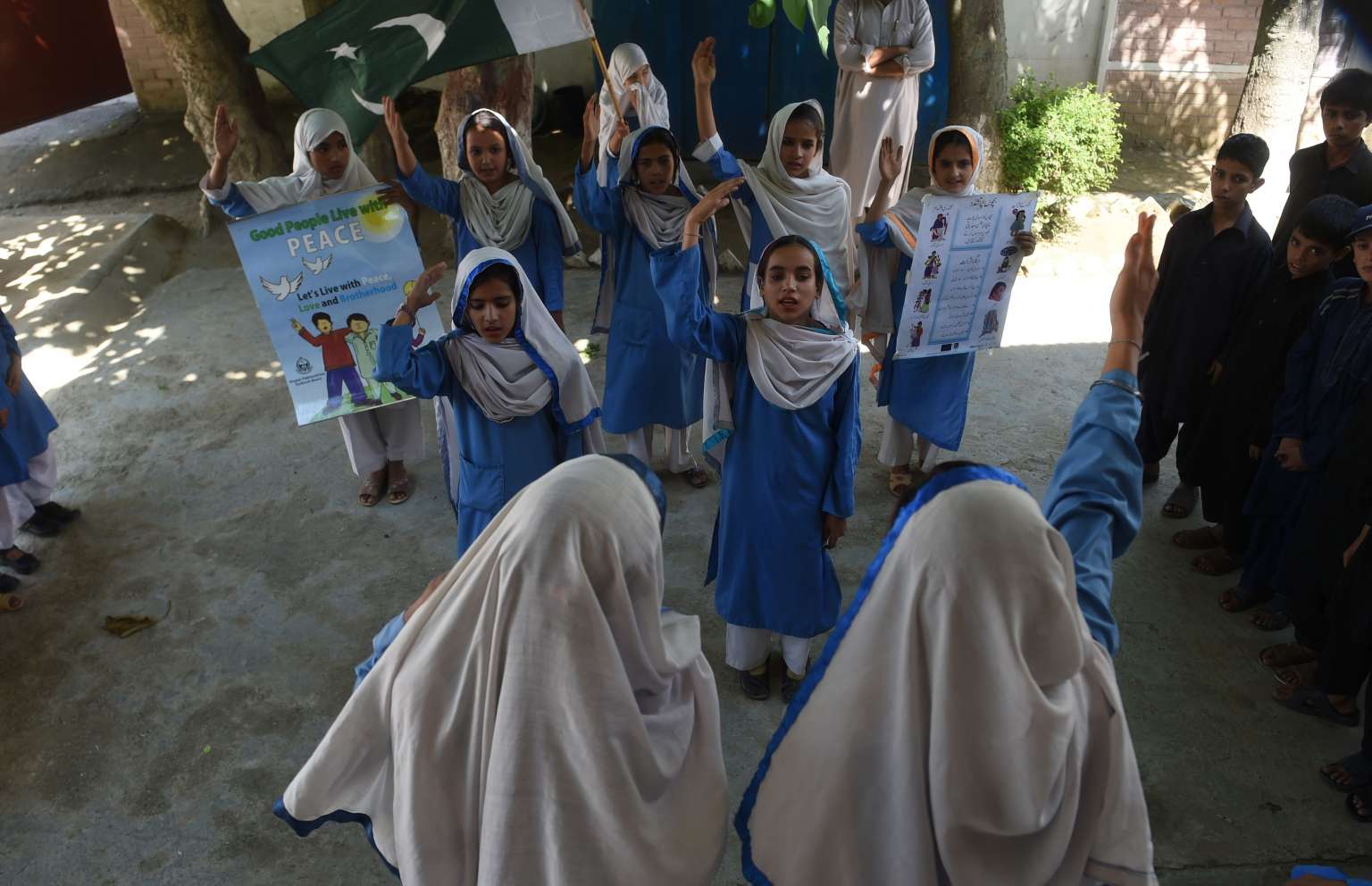Pakistan's neglect of education a boon for madrassahs : Dawn
Sign up now: Get insights on Asia's fast-moving developments

Hindko speaking schoolchildren sing the national anthem at their school in Mansehra.
PHOTO: AFP
Follow topic:
In its editorial on March 20, the paper urges Islamabad to increase spending and focus on improving quality education in the country.
ISLAMABAD (DAWN/ASIA NEWS NETWORK) - Over the years, one of the state's many sins of omission that have had a direct bearing on where Pakistan finds itself today is its neglect of the education sector.
A recent survey by Islamabad's capital administration illustrates the extent to which other actors have filled this vacuum.
According to its findings, educational institutions in the city number 348 - not counting higher secondary schools, which are generally considered inter-colleges - a figure exceeded by the number of madrasahs which currently stands at 374. And that is not all.
Of the seminaries, more than half - 205 - are unregistered. That in itself offers an indication of the enormous latitude given to religious organisations to set up these institutions and the lack of oversight by the government.
Add to this the information that the federal government has opened not a single new school in the city during the past four years, during which time a number of madrasahs have come up in Islamabad, and one can see the entire dismal picture in a nutshell.
This shocking dereliction of duty in the education sector is not localised but extends to the rest of Pakistan as well.
Religious leaders, the President of Pakistan's Assembly of Islamic Clerics, Maulana Fazlur Rehman, being the most vocal among them of late, bristle at the suggestion that madrasahs are to blame for faith-based violence.
It is undoubtedly true that all madrasahs do not promote extremism per se, let alone violent extremism, but it is equally a fact that by their very definition, they offer a conservative education that often fosters undesirable ideological divisions.
The abysmal budgetary allocation to the education sector, growing income inequality and the government's indifference to how it impacts access to institutes of learning by the poor, are a boon for the madrasahs.
For low-income households, the option is either to send their children to free but substandard government schools or to better quality private schools - even the most modest of which charge fees that are beyond the means of a large family.
Madrasahs offer the perfect formula; free board and lodging, coupled with education of at least an acceptable quality. The geo-tagging of madrasahs on a provincial level has revealed an alarming growth of these institutions, many of them unregistered.
The government has for too long outsourced the critical task of educating the population to religious organisations. Now that the disastrous results are before us, the state must pick up the gauntlet without further delay.
Dawn is a member of The Straits Times media partner Asia News Network, an alliance of 22 news media entities.

